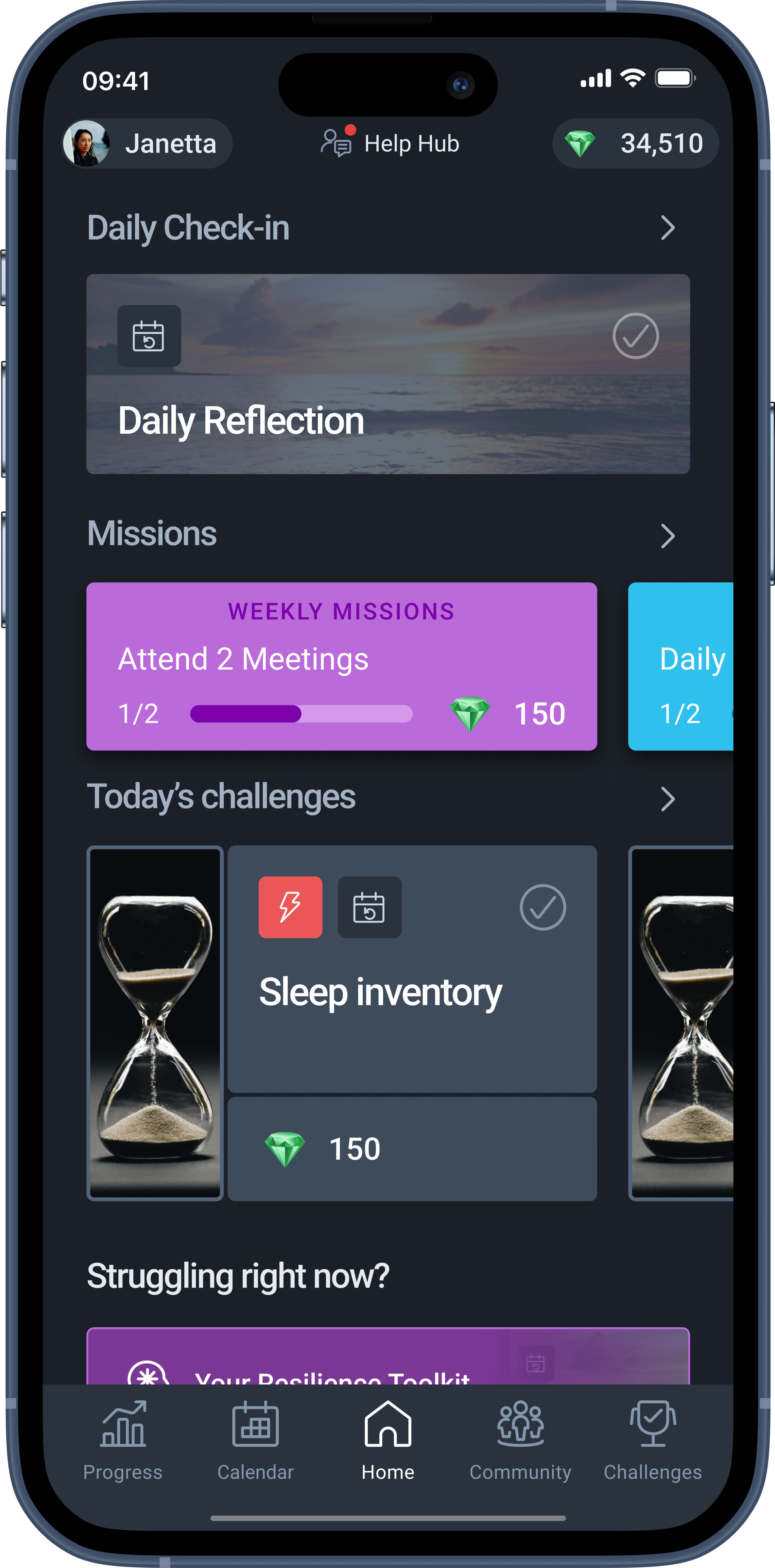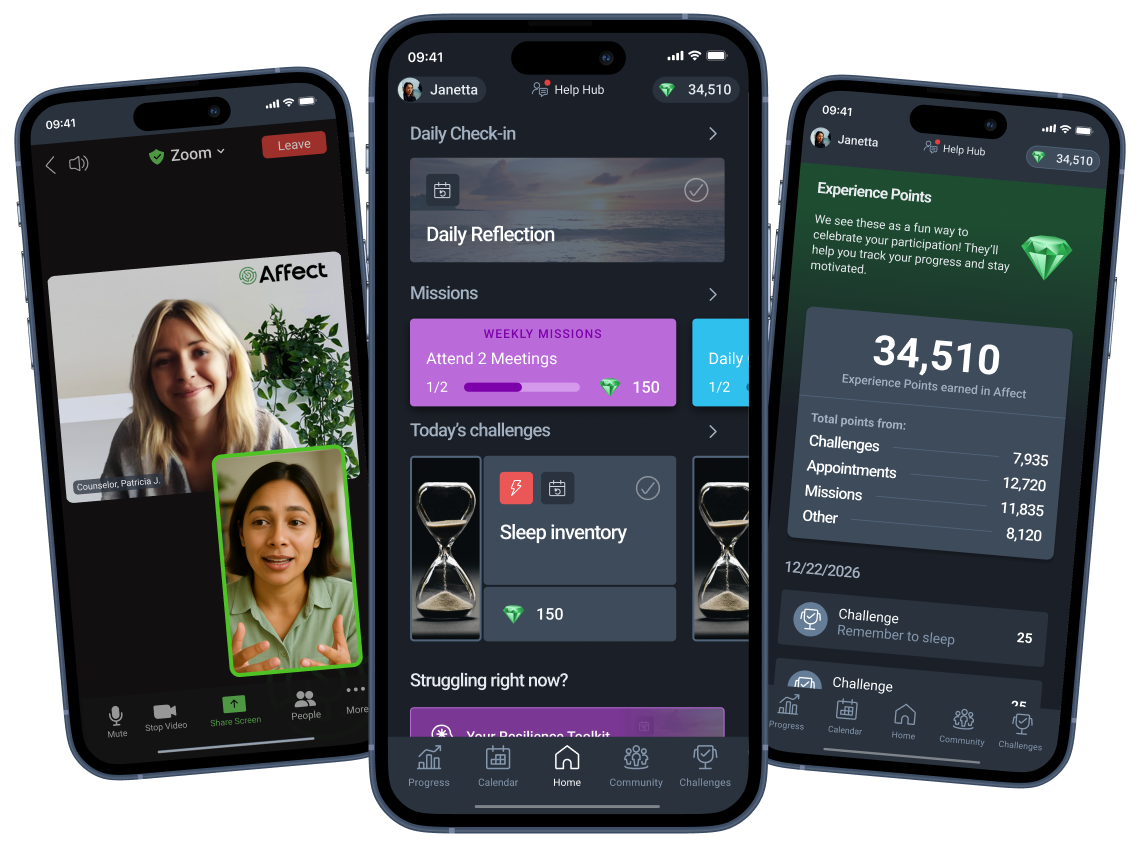Support for Postpartum Depression — You Care for Your Baby, We Care for You
Affect’s integrated therapy and medication program is made for new moms, accessible via smartphone, and fully covered by insurance, Medicaid, and Medicare.
Do I have postpartum depression?
Having a baby can bring joy — but it can also bring unexpected emotional challenges. If you’re feeling overwhelmed, sad, or disconnected after giving birth, you may be experiencing postpartum depression, a common and treatable condition.
Some signs to watch for include:
Feeling sad, hopeless, or empty most of the day
Crying more often than usual or without a clear reason
Feeling disconnected from your baby or not bonding
Irritability, anger, or anxiety that feels hard to control
Difficulty sleeping (even when the baby sleeps) or eating
Feeling like you’re not a good parent or doubting your ability
Loss of interest in things you used to enjoy
Thoughts of harming yourself or your baby (If this happens, seek help immediately)
At Affect, we take postpartum mental health seriously. You’re not alone. You deserve care too — and we’re here for you.


Care that helps you heal after birth
You shouldn’t have to navigate postpartum depression on your own — and with Affect, you don’t have to.
We offer a connected, compassionate approach to care that includes:
Therapy with licensed clinicians who understand the emotional challenges new parents face
Personalized medication management when needed, to support mood and stabilize symptoms
24/7 digital tools and support, so help is always within reach — even during late-night feedings or early-morning struggles
- An online community of other new parents, so you can connect with others like you
All of this happens from your phone, so you can get care on your terms, without needing to leave home. Our program is built to support you as a new mom — so you can feel stronger, more stable, and better equipped to care for yourself and your baby.
What medications are used for postpartum depression?
SSRIs like sertraline are often used safely during postpartum, including while breastfeeding. In some cases, newer options like zuranolone may be considered. We’ll talk through your options and find what works best for you and your baby.
SSRIs
Selective serotonin reuptake inhibitors
A Simple Step-by-Step Path Designed to Support Real Change
Week 1: Get Started
- Set up your app
- Meet with a therapist to determine your needs
- Meet with a medical provider for a health assessment and any prescriptions
- Begin goal tracking and small daily challenges
Weeks 2 – 8: Get Healthier
- If you’ve chosen therapy, attend 1:1 sessions
- Work with your medical provider to refine your medications as you begin to feel better
- Learn new coping skills through daily work in the app
Weeks 9+: Get Stronger
- Track your progress and accrue points
- Stay connected with your care team
- Adjust medications if needed
- Celebrate lifestyle wins with your online community

“Life feels manageable now!”
I have a bag full of coping skills to deal with life’s stressors.
Maria
I’ve learned how to love myself and to forgive myself. I’ve mastered boundaries. I’m no longer uneasy living alone.
Group and counselor support is the best. Life has improved because I learned it’s never too much trouble to take care of myself.
I’ve been able to focus on things that are important in my life, including my children. That it’s the best thing that could ever have happened to them, and to me.



